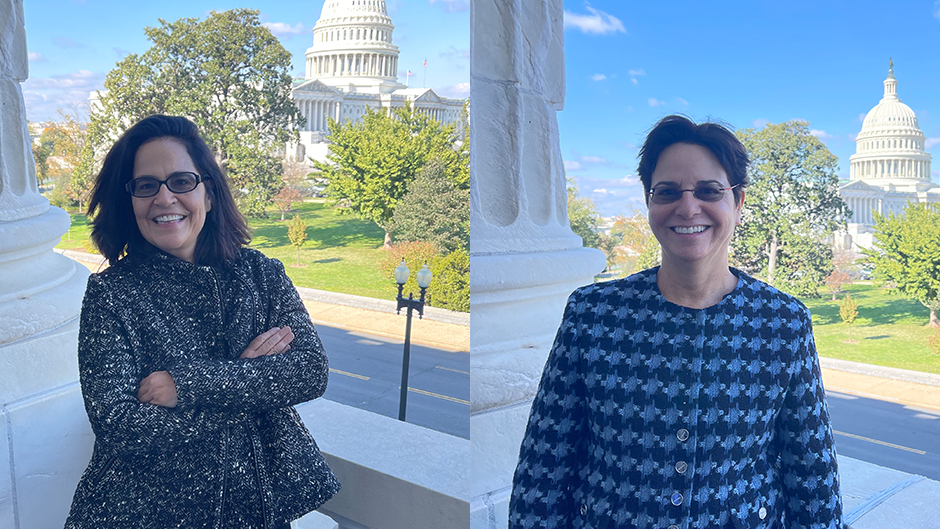Professor Elizabeth Iglesias, director of the Doctor of Juridical Science Program, and Visiting Professor of Law Madeleine Plasencia participated with a delegation of attorneys to advocate for the 599 political prisoners whose detentions arose from the July 11, 2021, protests. Fifty-two of those prisoners are clients of the Cuban American Bar Association, on behalf of whom CABA lawyers have submitted a petition to the Inter-American Commission on Human Rights.
The delegation met with members of the House of Representatives, staff working with Florida representatives in the Senate, State Department officials, as well as OAS officials, including Francisco Mora, the U.S. Ambassador to the OAS. The meetings were to increase awareness of the continuing violation of human rights in Cuba and specifically the plight of Cubans who remain detained because of the government’s crackdown on popular protest.
Additionally, while in Washington, D.C., Iglesias was sworn into the Bar of the Supreme Court of the United States. Plasencia had previously been admitted to the Supreme Court. She was sponsored by two racial justice, immigrants’ rights, and LGBT/HIV equality civil rights attorneys who argue before the Court, most recently representing University of North Carolina (UNC) students defending affirmative action in the case of Students for Fair Admissions, Inc. (SFFA) v. UNC. Admission gives individuals the ability to argue a case before the highest court in the nation.
Iglesias is the co-founder of Latina and Latino Critical Theory, Inc. (LatCrit, Inc.), which she incorporated in 1998 and co-directed until 2003. In 1997, she designed the Project for Legal Economic, Development, Justice, and Equality, an innovative clinical program to promote micro-business development, immigrant rights & the use of NAFTA labor and environmental side accords through workshops, community-based study circles and outreach to underprivileged high school students.
Plasencia’s research interests are in the intersection of tort and contract law and tort and securities law. She teaches classes on Federal Courts and Civil Rights in the Supreme Court at Miami Law.

